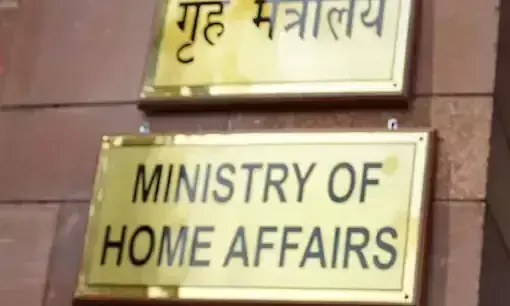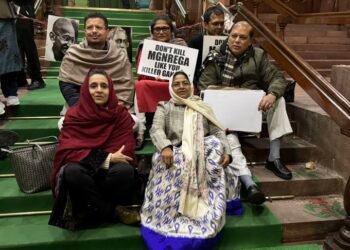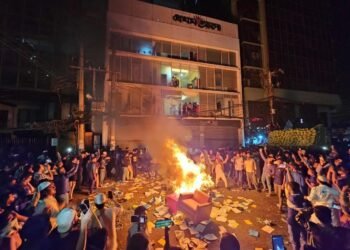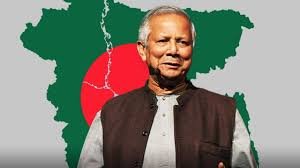Stricter monitoring: Cadres to be geo-tagged, camps relocated, and weapons kept under double-lock inspection by security forces.
BY PC Bureau
New Delhi, September 5 – The full text of the revised Suspension of Operations (SoO) Agreement signed between the Ministry of Home Affairs (MHA), the Government of Manipur (GoM), and the Kuki National Organisation (KNO) and United People’s Front (UPF) has now come to light. The document lays down the ground rules for ceasefire monitoring, restructuring of designated camps, and conditions for cadres, while extending the truce for another year.
Background of the SoO
The SoO arrangement was first put in place on August 1, 2005, as an informal understanding, before being formalised as a tripartite pact on August 22, 2008 between the Government of India, the Government of Manipur, and the KNO and UPF—umbrella bodies representing nearly 24 armed groups. Since then, the pact has been periodically extended, with the last extension lapsing on February 29, 2024.
READ: Manipur: UPF Camps Face Relocation, KNO Camps Stay Put
In the wake of the ethnic violence that erupted in Manipur on May 3, 2023, the need to review and tighten the agreed ground rules grew urgent. Officials said the revised terms were designed to make the framework “more effective and transparent” and to reassure both the state and the affected communities.
Key Changes in the Agreement
- Recognition of Political Demands:
For the first time since 2008, the preamble has been tweaked to insert a clause acknowledging the “political demands” of the Kuki-Zo groups. In October–November 2023, the groups submitted in writing that their demand referred to the creation of a Union Territory, and the MHA has now agreed to consider this in principle. - Highway Security Commitment:
The Kuki-Zo Council has given its endorsement to ensure safe movement on National Highway-2 between Imphal and Dimapur. This is seen as crucial because on March 8, 2024, Kuki-Zo groups had staged a dramatic protest in Kangpokpi to block highway reopening. - Camp Restructuring and Relocations:
The agreement lays down a major reshuffle of designated camps under SoO.- UPF Camps: Multiple camps, including Shamusang/Sinai, Nabil/Nalon, Salem/Mongbung, Chelep/Harmon, and Sinlung, will be relocated to new villages across Kangpokpi, Churachandpur, Tengnoupal, and Pherzawl districts.
- Mergers: New Phaisat/Gilgal and Chongkhojou/Horeb camps will be merged at New Saikot. Mt. Sinai camp will be closed and merged with Phaibatang and New Teikot camps.
- Renaming: Thingsat camp will shift to Kharam Vaiphei village and be renamed “Lhangkichoi” camp.
- KNO Camps Unchanged: The T. Gamnom camp (KNO), along with Nazareth, Phaibatang, and New Teikot camps (UPF), will remain in their present locations.
- Commitment to Non-Violence:
KNO, UPF, and all their constituents have reaffirmed their commitment to abjure violence, respect the Constitution, abide by Indian law, and uphold the territorial integrity of Manipur. - Path to Political Settlement:
The revised agreement specifies that the SoO framework will be followed by structured tripartite dialogue aimed at achieving a negotiated political settlement within a time-bound manner, under the ambit of the Constitution of India.
Kuki-Zo Groups Strike Hard Bargain, Ceasefire Extended with Symbolic Concession#MHA #Sooextended #kukizo #Kukizocouncil #Manipur https://t.co/w3SZVfkBDW
— POWER CORRIDORS (@power_corridors) September 4, 2025
Basic Principles
- No Links with Other Armed Groups – KNO/UPF cadres cannot associate with other militant groups in India or abroad.
- No Offensive Operations – Acts such as ambush, raid, kidnapping, extortion, intimidation, or armed attacks are prohibited.
- No Security Force Action if Rules Followed – Security Forces will not target KNO/UPF as long as the agreement is observed.
- Joint Monitoring – Enforcement of rules will be overseen by a Joint Monitoring Group (JMG).
- Violations – Offenders will face legal action; repeated violations can lead to termination of SoO and resumption of security operations.
- Extension Clause – Agreement renewed for a year, with stipends for cadres in camps paid through Aadhaar-linked bank accounts.
READ: Manipur: Kuki-Zo Have the Last Laugh — Jharkhand Proves ‘Territorial Integrity’ Isn’t Sacrosanct
Designated Camps
- Relocation: Each of KNO and UPF will maintain six designated camps after closures/reshuffles. Camps must not be near highways, populated areas, conflict zones, or international/state borders.
- Restrictions:
- No fresh recruitment of cadres.
- All cadres must stay in camps; only 20% can leave on out-pass/leave/PSO duty.
- Camps must close unauthorized sites immediately or face forcible closure.
- Monitoring:
- Monthly inspections and biometric/geo-tag attendance may be introduced.
- Leaders allowed PSOs, but weapons must be carried concealed.
Conduct of Cadres
- Cadres cannot acquire new arms or move publicly with weapons/uniform.
- No protests, road blockades, or obstruction of government services.
- No armed parades or construction of memorials; Raising Day celebrations restricted to camps.
- No external links or creation of new factions.
- Government stipends will be restricted to cadres verified during inspections.
- Cadres will receive skill development training at government expense.
- Donations from the public are banned.
Weapons Protocol
- All weapons to be kept under a double-lock system at a nearby Security Force unit for at least six months, subject to review.
- Joint monthly inspections will be conducted, with records maintained by KNO/UPF, State Police, and Security Forces.
Joint Monitoring Group
- Headed by the Principal Secretary/Commissioner (Home), Manipur, with MHA, CAPF, Army/Assam Rifles, and state police representatives.
- KNO and UPF to be jointly represented by up to five members each.
- Will meet monthly to oversee implementation and resolve disputes.
Observers note that the insertion of political demands marks the most significant breakthrough in the SoO framework since its inception. For years, the pact was extended with a boilerplate clause on territorial integrity. This shift, analysts say, explains why Meitei groups have reacted sharply, viewing it as a concession that could pave the way for territorial reorganisation.
At the same time, the Kuki-Zo endorsement of safe highway passage is seen as a confidence-building measure, even if it contradicts earlier demonstrations to block NH-2 traffic.
The success of the revised pact will hinge on how effectively the new monitoring mechanisms are enforced and whether the relocation of camps can be carried out smoothly without sparking fresh local tensions.
With the KNO and UPF once again committing themselves to a political dialogue under the Constitution, officials in Delhi see this as an opportunity to steer the conflict into a negotiated settlement. But in Manipur’s volatile climate, the challenge lies in bridging distrust between communities even as armed groups await the outcome of their long-standing political aspirations.













